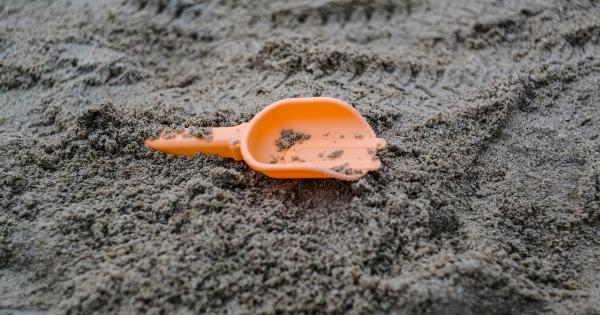Sex drive, also known as libido, is an essential component of human sexuality. It refers to one’s overall interest in sexual activity and can vary from person to person.
While numerous factors contribute to an individual’s sex drive, lifestyle choices have a significant impact on its intensity. Our daily habits, diet, exercise routine, stress levels, and relationship dynamics all play a crucial role in influencing our libido. In this article, we will discuss how various aspects of our lifestyle can affect our sex drive.
1. Exercise and Physical Activity
Regular physical activity has been known to improve overall health and well-being, and it can also have a positive impact on our sex drive. Engaging in physical exercise releases endorphins, which are known as the “feel-good” hormones.
These endorphins promote a sense of well-being and can enhance sexual desire.
Exercise also enhances blood circulation, thereby improving sexual function and performance. Moreover, it helps maintain a healthy body weight, which is crucial for hormone balance and increased libido.
Incorporating exercises such as cardiovascular activities, strength training, and yoga can significantly boost your sex drive.
2. Diet and Nutrition
The food we consume plays a vital role in our overall health, including our sexual health.
A balanced diet consisting of fruits, vegetables, lean proteins, and whole grains provides essential nutrients that promote proper hormone production and circulation, supporting a healthy sex drive.
Certain foods are believed to have aphrodisiac properties and can stimulate sexual desire. For example, oysters are high in zinc, a mineral that helps regulate testosterone production.
Similarly, dark chocolate contains antioxidants that relax blood vessels and increase blood flow to the genital area, enhancing arousal.
On the other hand, a diet high in processed foods, saturated fats, and sugars can negatively impact overall health, leading to weight gain, reduced energy levels, and hormonal imbalances, resulting in a decreased libido.
It is essential to maintain a nutritious diet to support a healthy sex drive.
3. Stress and Mental Well-being
High levels of stress and mental health issues can significantly affect our sex drive. Chronic stress releases cortisol, also known as the “stress hormone,” which can suppress the production of sex hormones like testosterone and estrogen.
Stress can also lead to fatigue, anxiety, and depression, making it challenging to feel sexually aroused.
Additionally, individuals experiencing stress may have difficulty focusing on intimacy and may struggle to form emotional connections with their partners.
Practicing stress-reducing techniques like meditation, deep breathing exercises, and engaging in activities that bring joy can help alleviate stress levels and promote a healthy sex drive.
Seeking professional help is also crucial if stress or mental health issues become overwhelming.
4. Sleep Patterns
Sleep is essential for both physical and mental well-being, and it also plays a crucial role in maintaining a healthy sex drive.
Inadequate sleep or poor sleep quality can lead to fatigue, decreased energy levels, and a lack of interest in sexual activities.
During sleep, the body produces and regulates various hormones, including those responsible for sexual desire. Sleep deprivation can disrupt hormone production and result in imbalances that negatively impact our sex drive.
Creating a bedtime routine, ensuring a comfortable sleep environment, and prioritizing quality sleep can help maintain optimal hormone levels and positively affect our libido.
5. Alcohol and Substance Use
Most people are aware that alcohol and substance use can impair judgment and cognitive function, but they may not realize that these habits can also affect their sex drive.
While alcohol may initially lower inhibitions and can increase sexual desire, excessive alcohol consumption can hinder sexual performance and dampen libido in the long run.
Substances like opioids, marijuana, and certain prescription drugs can also interfere with sexual desire, arousal, and overall sexual function.
It is essential to consume such substances in moderation and be aware of their potential impact on sexual health.
6. Relationship Dynamics
The quality and dynamics of our relationships can significantly influence our sex drive. A healthy, loving, and supportive relationship is often associated with heightened sexual desire.
Emotional connection, trust, and open communication foster intimacy and create a sense of security, which can contribute to a more satisfying sexual experience.
In contrast, relationship problems, unresolved conflicts, and lack of emotional intimacy can lead to a decrease in sexual desire. It is crucial to cultivate and maintain healthy relationships to promote a healthy and fulfilling sex life.
7. Hormonal Changes and Medical Conditions
Hormonal changes that occur throughout various stages of life, such as puberty, pregnancy, menopause, and andropause (in men), can significantly affect sex drive.
Fluctuations in hormone levels can lead to a temporary decrease or increase in sexual desire.
In addition to hormonal changes, certain medical conditions can impact libido. Conditions like diabetes, high blood pressure, cardiovascular disease, and hormonal imbalances can all contribute to a reduced sex drive.
Managing these conditions through appropriate medical treatment can help alleviate the impact on sexual desire.
8. Medications and Birth Control
Some medications, such as antidepressants, antihistamines, and certain blood pressure medications, can have sexual side effects, including decreased libido and difficulty achieving orgasm.
It is important to discuss any concerns about medication and its impact on sexual health with a healthcare provider.
Furthermore, certain forms of birth control, such as hormonal contraceptives, can affect hormone levels and potentially lower sexual desire.
Discussing alternative birth control methods with a healthcare provider may help find a suitable option that minimizes the impact on libido.
9. Age and Aging
As we age, our bodies naturally undergo various changes, including hormonal shifts. Both men and women experience a gradual decline in sex hormone production, which can lead to a decrease in libido.
However, it is crucial to remember that aging itself is not the sole determinant of low sex drive, as lifestyle factors and underlying medical conditions also play a significant role.
Maintaining a healthy lifestyle, engaging in regular physical activity, and prioritizing emotional connection can help mitigate some of the effects of aging on sexual desire.
10. Psychological Factors
Psychological factors, such as body image concerns, low self-esteem, trauma, or past negative sexual experiences, can profoundly impact our sex drive.
Negative body image, for example, can lead to feelings of self-consciousness and reduced sexual desire.
Addressing these psychological factors through therapy, self-help techniques, or open communication with a partner can help improve self-esteem and promote a healthier sex drive.































